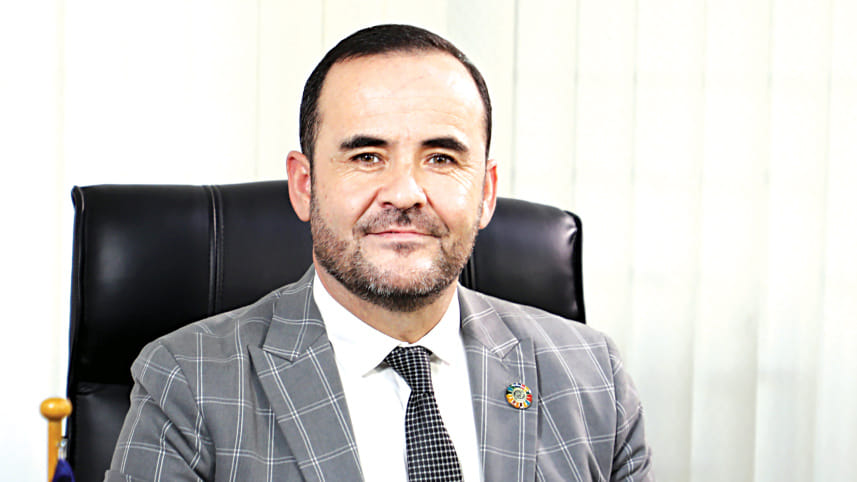“There is a need for further advocacy for continued humanitarian support to Rohingya refugees”

The Daily Star (TDS): How will you evaluate the current status of Rohingya refugees?
Abdusattor Esoev (AE): For more than five years, the Government of Bangladesh has generously hosted nearly one million Rohingya refugees in camps in the Cox's Bazar District. More than half of them are children. From volunteering to support disaster responses to participating in door-to-door outreach to raise awareness of the COVID-19 prevention measures, the Rohingya refugee community has led efforts across the camps to support each other. The Government of Bangladesh and the international community continue to provide immediate lifesaving assistance. At the same time, Rohingya refugees face dangers related to natural hazards, disease outbreaks, and a deteriorating protection environment. As the crisis becomes protracted, Rohingya refugees living in the world's largest refugee settlement remain highly dependent on humanitarian assistance. IOM is one of the leading agencies responding to the Rohingya refugee crisis in Cox's Bazar. We provide comprehensive and lifesaving humanitarian assistance based on the needs identified by the communities. In the camps, IOM's activities cover Protection, Shelter/Non-Food Items (SNFI), Water, Sanitation & Hygiene (WASH), Site Management and Site Development (SMSD) and Health. IOM also distributes liquefied petroleum gas (LPG) to refugees and host communities to address their cooking fuel needs. IOM champions innovative, climate-friendly solutions to minimise negative impacts on the environment. We coordinate closely with the government, humanitarian agencies, development partners and NGOs, leveraging their expertise to best meet the needs of the affected population.
TDS: The Rohingya refugee issue is a long-term crisis. What should be done to solve this crisis?
AE: Although Bangladesh has generously hosted the Rohingya refugees for the past five years, one country cannot and should not bear this responsibility alone. International and local humanitarian actors must continue to support the response led by the Government of Bangladesh to enable the Rohingya refugees to live dignified lives while in displacement. IOM also recognises the needs of host communities in Cox's Bazar. We work closely with the local authorities to provide complementary assistance to both refugees and host communities. As the crisis stretches into its fifth year and becomes protracted in nature, Rohingya refugees should be empowered through increased access to education and skills development to help support themselves and prepare for a sustainable, dignified and safe return to Myanmar when conditions permit.
TDS: Some factors, such as the Ukraine-Russia war, appear to be diverting attention from the Rohingya refugee crisis. The fund is also decreasing every year. What needs to be done in this regard?
AE: As the world increasingly experiences humanitarian crises, rising food prices and the lasting impacts of the COVID-19 pandemic, international funding for the humanitarian response for the Rohingya refugees in Cox's Bazar has declined. The needs, however, remain, and in many senses, they have increased. There is a need for further advocacy for continued humanitarian support to Rohingya refugees. The humanitarian community and the Government of Bangladesh should work together to ensure that this response is not forgotten. Humanitarian agencies should streamline their operations to maximise the impact of their funds.




 For all latest news, follow The Daily Star's Google News channel.
For all latest news, follow The Daily Star's Google News channel.
Comments